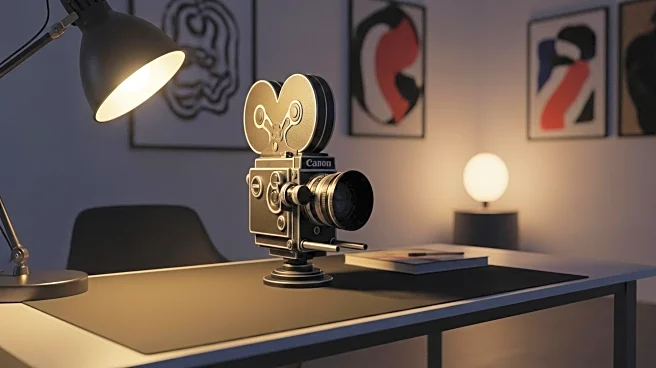What's Happening?
Actor Callum Turner and director Mark Jenkin discussed their film 'Rose of Nevada' at the Toronto International Film Festival. The film, shot on 16mm film with all sound added in post-production, presents a unique filmmaking process. Turner described the experience of working with Jenkin, who uses a Bolex camera that allows only 27-second takes, requiring actors to adapt to the constraints of the medium. The film is an exploration of time, memory, and disappearance, showcasing Jenkin's distinctive style. The project involved extensive post-production work, including ADR, to complete the sound design.
Why It's Important?
The film 'Rose of Nevada' highlights innovative approaches in filmmaking, challenging traditional methods and pushing creative boundaries. By using 16mm film and post-production sound, the project emphasizes the artistic potential of analog techniques in a digital age. This approach may inspire other filmmakers to explore similar methods, contributing to the diversity of cinematic expression. The film's themes of time and memory resonate with audiences, offering a reflective experience that contrasts with mainstream cinema. The discussion at TIFF underscores the importance of film festivals in promoting unique artistic voices.
What's Next?
Following its premiere at TIFF, 'Rose of Nevada' may continue to gain attention at other film festivals, potentially leading to wider distribution. The film's innovative techniques and thematic depth could attract interest from cinephiles and critics, enhancing its visibility. As audiences and industry professionals engage with the film, it may spark discussions about the role of traditional filmmaking techniques in contemporary cinema. The success of 'Rose of Nevada' could encourage more filmmakers to experiment with similar approaches, fostering a renewed appreciation for analog film.









